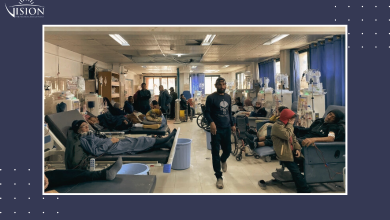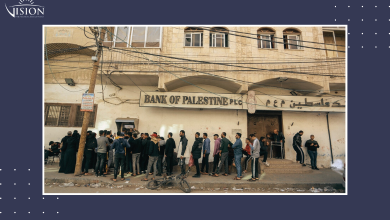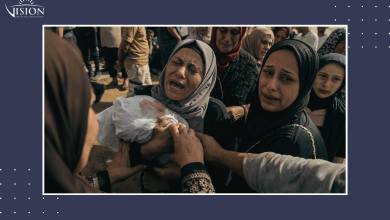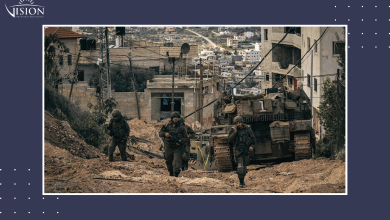Israel’s New Sanctions on the PA: Ramifications and Transformations
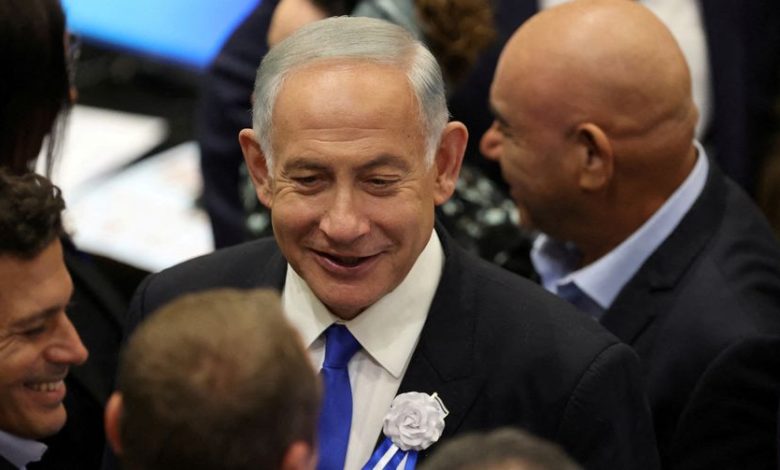
By Iyad Abu Zneit
With all means of pressure, “Israel” does not desist threatening any form of internationally practiced activism by Palestinians against its entity because it constitutes a real threat to its illegal existence, and it does not mater whether practiced by an organization or an official regime. In fact, “Israel” has previously targeted the BDS movement with a series of sanctions against its individuals and sought to fight it globally.
After the Palestinian Authority (PA) had succeeded in urging the UN General Assembly to come up with a resolution, on December 31, 2022, demanding the International Court of Justice to express its opinion on the question of the legitimacy of the Israeli occupation of the West Bank and East Jerusalem, The Israeli Cabinet, enforced a series of sanctions on the Palestinian Authority, varying from financial sanctions to targeting Palestinian leaders.
This report sheds light on the ramifications of the enforcement of the Israeli renewable sanctions on the PA and the Palestinian prisoners and their implications on the Palestinian situation in the short and long terms, the extent of its impact on the PA’s tendencies, how it would affect the relations among Palestinian factions and whether anticipated new sanctions would be employed by different unprecedented means and methods.
Background of sanctions
Israel sees any political or legal activism, practiced at the international level, as a threat and that is why it keeps monitoring any international, Arabic, or regional changes in consistence with its basic strategy of preserving its entity. Therefore, the Palestinian activism in the UN formed a new source of concern over the legitimacy of the Israeli entity, especially that Israel is very well aware of the fact that it was established based on an international formula and any fault in, or effect on, its variables would definitely have implications on its state and entity. Hence, it has always been prepared with its punishment policy to respond to any Palestinian activism directly and effectively.
In 2022, Israel criminalized a group of Palestinian organizations that monitor, document, and convey Israeli violations to the world. Moreover, it broke into and closed their offices. Israel also sought more sanctions on the PA over the latest Palestinian move in the form of financial cuts, added to clearance tax money deducted from the PA budget. Besides, it deducted $40 million for what they claim as Israeli families affected by Palestinian resistance operations, in addition to cutting amounts of money the PA pays as wages to the Palestinian families of prisoners and martyrs, which equals $171 millions annually.
Other latest sanctions included the prevention of continuing Palestinian schemes in the Palestinian territories that are classified under Area C category. Some privileges of Palestinian officials, such as foreign minister, have also been withdrawn, in addition to the emphasis on targeting Palestinian organizations that play an effective role in pursuing Israel legally and politically. This is added to potential sanctions to be imposed on Palestinian prisoners including unaffordable financial penalties inside Israeli jails. Head of Palestinian Prisoners Club, Qadura Fares, revealed a remarkable escalation in the tendency of the Israeli courts lately to impose extravagant penalties on Palestinian detainees serving life-long sentences.
With the most extremist and intolerant government in the history of Israel, and in light of its disclosure of targeting Palestinians with all given means and methods and without any fear of the consequences and implications, the latest sanctions, which reflect an Israeli policy driven by attractions and contrasts inside the parties constituting the current policy, came to make Palestinians pay the price for their just and legitimate struggle. Within this scope, Israeli sanctions do not deviate from being clear exploitation means that require insistence on forwarding efforts that would dissuade Israel from continuing its policies against Palestinians. This is significant because Israel considers the latest Palestinian move a very dangerous act that may affect the internal and external situations in Israel, because it made the UN General Assembly adopt a decision demanding The Hague-based International Court of Justice to reconsider the Israeli occupation of the Palestinian territories and to determine the legal consequences for the Israeli ongoing violations of the Palestinian people’s right to self-determination and its changing of the demographic situation of the city of Jerusalem, which has been significantly tackled in the UN General Assembly.
Palestinian Authority: Regression or persistence?
In response to the latest Israeli sanctions, the spokesman of the PA presidency declared that the PA is persistent to go on its tendencies to pursue Israel legally and diplomatically and to accomplish the establishment of the Palestinian State. The Palestinian Foreign Ministry asserted that such procedures will not dissuade the Palestinian people from carrying on fighting as well as acting legally, politically, and diplomatically to guarantee international protection of the Palestinian people and to put an end to Israel’s repetitive escape from the accountability and punishment.
The PA’s preference to internationally tighten the noose on Israel and to question its legitimacy, represents an advanced move in case it goes on to take effect, in light of the Israeli concern in this regard. However, this position is subject to great pressure exerted by “Israel” on the PA, which may form an obstacle to its continuation, despite the Palestinian assertion of that. The greatest forms of pressure would include:
- The financial situation of the Palestinian Authority is critical, in light of its inability to pay the full salaries of its employees for more than a year, and as a result of the recent Israeli moves. It is noted that the financial situation will witness complications and delays in the payment of dues, which will further complicate matters, especially because many parties and donor countries have halted offering financial assistance.
- Israel is trying to introduce new types of sanctions, such as withdrawing privileges from Palestinian officials, which may later on develop into campaigns to prevent movement and travel, which may practically affect Palestinian moves in light of the absence of various alternatives to take control of the situation.
- The Palestinian Authority seeks to make the condemnation of Israel a binding decision when approved by the United Nations General Assembly, but it is aware of the possibility of a collision with the veto right expected to be taken by the United States of America against the Palestinian endeavor, taking into consideration that it used this right more than 43 times against draft resolutions pertaining to the Palestinian cause and in favor of Israel. Examples of this include vetoing a bill calling on Israel to protect holy places in 1976, as well as another one condemning land confiscation in 1995, and another bill condemning Israel over the killing of 3 United Nations employees in 2002, in addition to the right of veto against the condemnation of settlements and considering it illegal in the year 2011. It was also used to stop a draft resolution submitted by Egypt to stop the decision of former US President Donald Trump, considering Jerusalem the capital of “Israel”, including East Jerusalem, in 2017.
Despite the abovementioned different kinds of pressure, there are a number of factors that could contribute to supporting the Palestinian Authority’s continuation of its serious and organized moves to internationally confront Israel:
- This step comes as part of a Palestinian project that seeks to tighten the screws on the occupation, which, if transferred to the Palestinian public clearly and insistently to advance in it, then Palestinians will be ready to support it, especially as it comes in light of the escalated aggressive occupational moves, while the Palestinians people is seriously yearns for a serious PA’s action against the Israeli occupation.
- Israel’s responding by enforcing collective sanctions on the Palestinian people, targeting them financially and violating their human rights would very likely increase or contribute to the unity of the Palestinians, reflecting a popular demand on confronting the Israeli occupation. In this context, Hamas along with civil society organizations, condemned the “Israeli” sanctions and seconded the PA’s official international movement.
- Despite the historic American support for the Israeli occupation, the composition of the current Israeli government, its declared hostility to Palestinians, and the general dissatisfaction with its performance can be exploited diplomatically. For example, a spokesman for the US State Department confirmed that the sanctions imposed by Israel on the Palestinian people especially those proposed by the new extremist government, or the calls for imposing legal sanctions on Israel, may backfire, but only in the case that the UN voting resolution obtains the support of more than 86 countries, including major countries such as China and Russia. Then, this would contribute to pressuring Israel by the United States to back down from applying its new sanctions against the Palestinian people and the PA.
- There is an opportunity through the Palestinian approach to invest in the Arab and regional environment, especially that all Arab countries voted in favor of the resolution, even the latest to approve its normal relations with the occupying state.
- The Palestinian Authority can lead the initiative in confronting the occupation by waiving the Israeli means of pressure such as withdrawing privileges from some Palestinian leadership figures since it has been used by Israel as a blackmail card.
- The policy of the Israeli occupying state and its current government is clear to the extent that its brutality and embrace of state terrorism are no longer hidden, which puts the Palestinian Authority in front of two options: either a real confrontation towards continuing its moves globally, or a decline of its support in the Palestinian street. This means that if the PA wants to maintain its influence, it must adopt new approaches to guarantee the support of the Palestinian street.
Conclusion:
The recent Israeli collective sanctions imposed on the Palestinian peopleand the Palestinian Authority may push the situation to a crisis and even an explosion, and this is likely to happen in light of an “Israeli” government that leads organized state terrorism, and does not hesitate to emphasize the practice of its brutality. Therefore, this is what prompts the presence of Palestinian responses at a time when the Palestinian sees himself as besieged and stranded in stressful circumstances from all aspects, financially, politically, and geographically. The recent sanctions clearlypoint to the Israeli arrogance and superiority; and like a rolling snowball they will bring up other sanctions to be imposed by the current Israeli government as Israeli Minister of Finance, Smotrich said lately. Therefore, turning to international forums is a step in the right direction, which requires insistence on accomplishment, which would open a gateway to true Palestinian unity.


